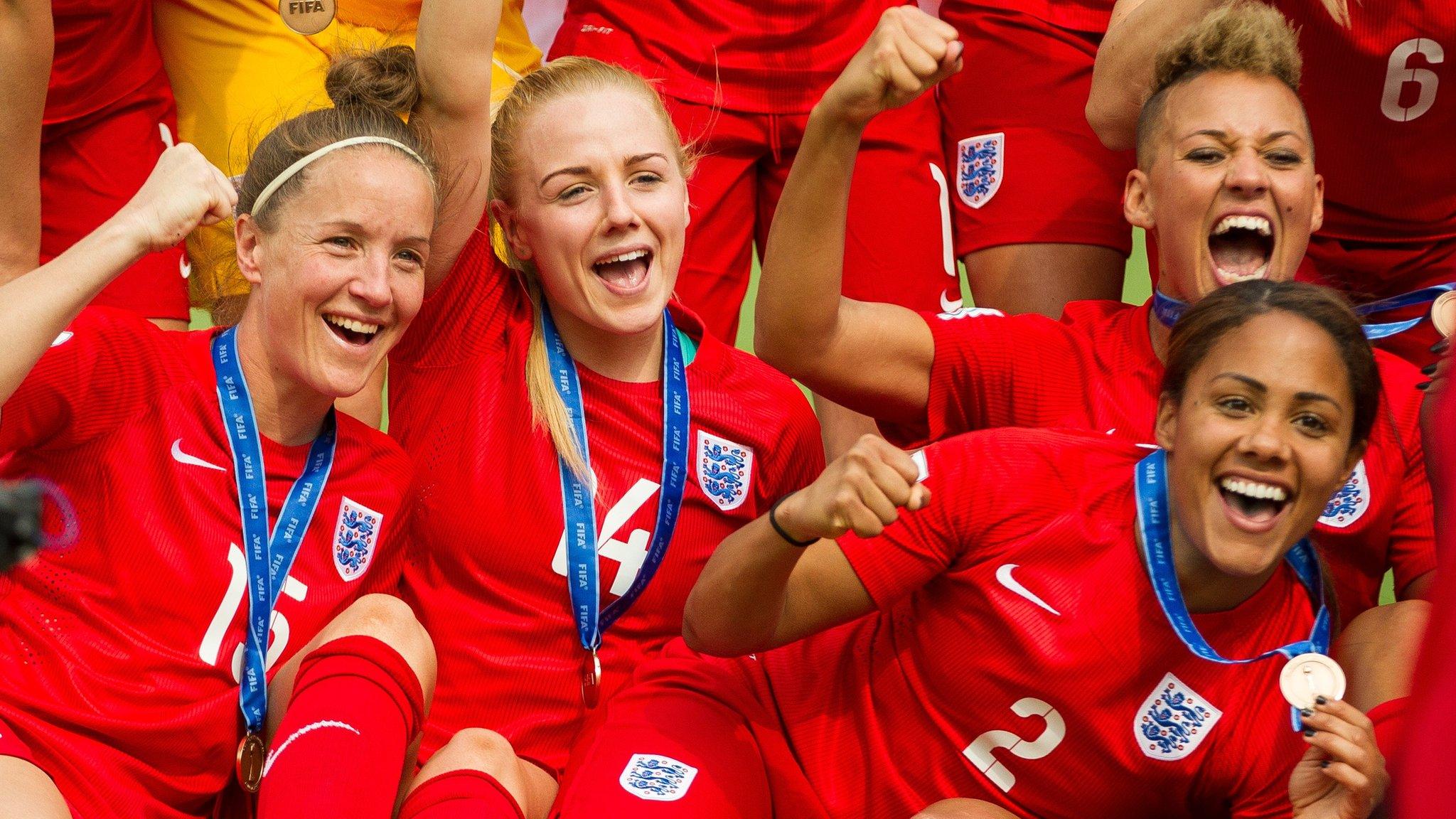Football Association 'let down' women's football - Martin Glenn
- Published
- comments
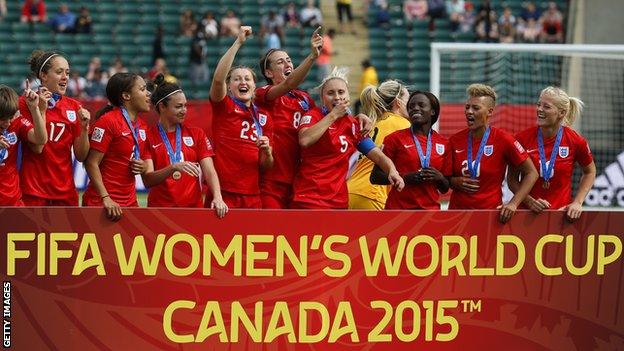
England beat Germany to finish third at the 2015 Women's World Cup in Canada
The Football Association "let down" women's football in the past, chief executive Martin Glenn has said.
The FA banned women's football from being played at Football League grounds in 1921 and did not take the sport back under its jurisdiction until 1993.
Glenn said: "We even banned it in its pomp and we were slow to introduce it. We are addressing these failings."
On Monday, English football's governing body unveiled plans to double the number of female players, external by 2020.
The England women's side finished third at the 2015 World Cup, and will take part in this summer's European Championship in the Netherlands.
The FA has said it would be keen to host a major international tournament in the coming years "to inspire the next generation".
England's record goalscorer Kelly Smith welcomed Glenn's comments and described the new initiative as "phenomenal".
Smith, who retired earlier this year after scoring 46 goals in 117 international appearances, said: "Martin is right. I felt quite neglected as a national team footballer in the past.
"To be here today brings a tear to my eye. I think it is key to get into schools and get girls playing at a young age. This strategy is just phenomenal for me."
'England aiming for 2023 World Cup win' - why not 2019?
One key aim outlined by the FA on Monday was their ambition for England to win the Women's World Cup by 2023.
However, after finishing third in 2015, could more ambition be shown to win the next World Cup in 2019?
"I think in 2019 we will do OK. To set an ambition to win in 2019 is probably not realistic," the FA's head of women's football, Baroness Sue Campbell, told BBC Sport.
"It is about looking down the talent pathway and recognising that, between now and 2019, we are going to lose some of our present England players. Looking at what the replacements look like, we have got good players coming through but we would question whether they are quite where we need them to be.
"But by 2023 that talent pathway should be working really well."
England boss Mark Sampson has said his side can win the 2017 European Championships, but Campbell continued: "The guy leading the coaching has to set that ambition for his team.
"But he also knows very realistically that the talent pathway isn't quite where he wants it to be. We are doing a lot of work with that group (of players) underneath to see if we can fast-track people."
Meanwhile, the FA has appointed David Faulkner to the new role of head of women's performance. The former Great Britain hockey international spent seven years as performance director of England and Great Britain between 2005 and 2012.
When might England host a major tournament?
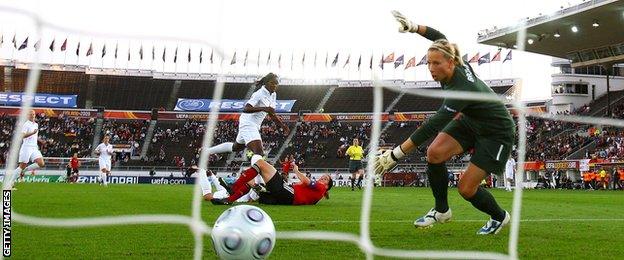
England Women's furthest progression at a major tournament saw them reach the final of Euro 2009, which they lost 6-2 to champions Germany
The FA also want England to host a major international women's tournament in the foreseeable future, having never hosted the Women's World Cup and having last hosted the Women's European Championships in 2005.
"I think it is probably the Euros that we would pitch for," said Campbell. "We are unquestionably very serious about trying to get (a major tournament) - and I think it would be the European (Championships) - here."
Glenn confirmed that the possibility of England hosting a major tournament in the next few years had been discussed, adding: "I think it would have a nice, catalytic influence on the game if we did.
"We need to get the government clear on our governance reorganisation, which I think we will do. That should make them more positive about supporting us to do any international tournaments."
Asked if that reorganisation could be completed in time for England to bid to host Euro 2021, Glenn replied: "It could be. I don't want to promise anything. But it could be, yes."
Could Team GB play women's football at Tokyo 2020?
The FA want to resurrect a Great Britain team for the next Olympic games, after the four national football associations were unable to agree on sending GB teams to Rio in 2016, despite having previously fielded men's and women's teams at London 2012.
"Clearly we can't force that upon anybody - it has got to be done in a collaborative way," added Campbell.
"We have already started those discussions with the home nations and by the end of next week we will have met Northern Ireland, Wales and Scotland.
"I am trying to build a relationship that says 'we would like to do that' but also cooperate in other ways, so we build a sense that we are all trying to grow the women's game and we would all benefit from a GB team going to Tokyo."
- Published8 March 2017
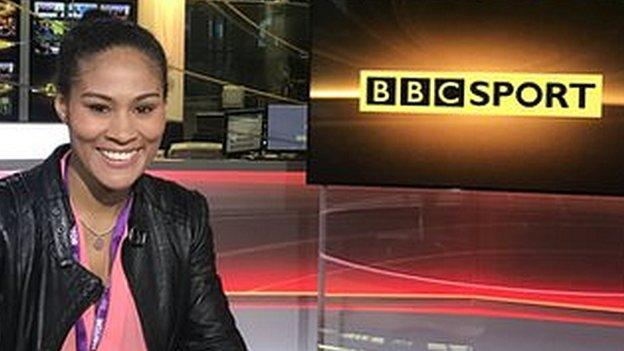
- Published8 March 2017
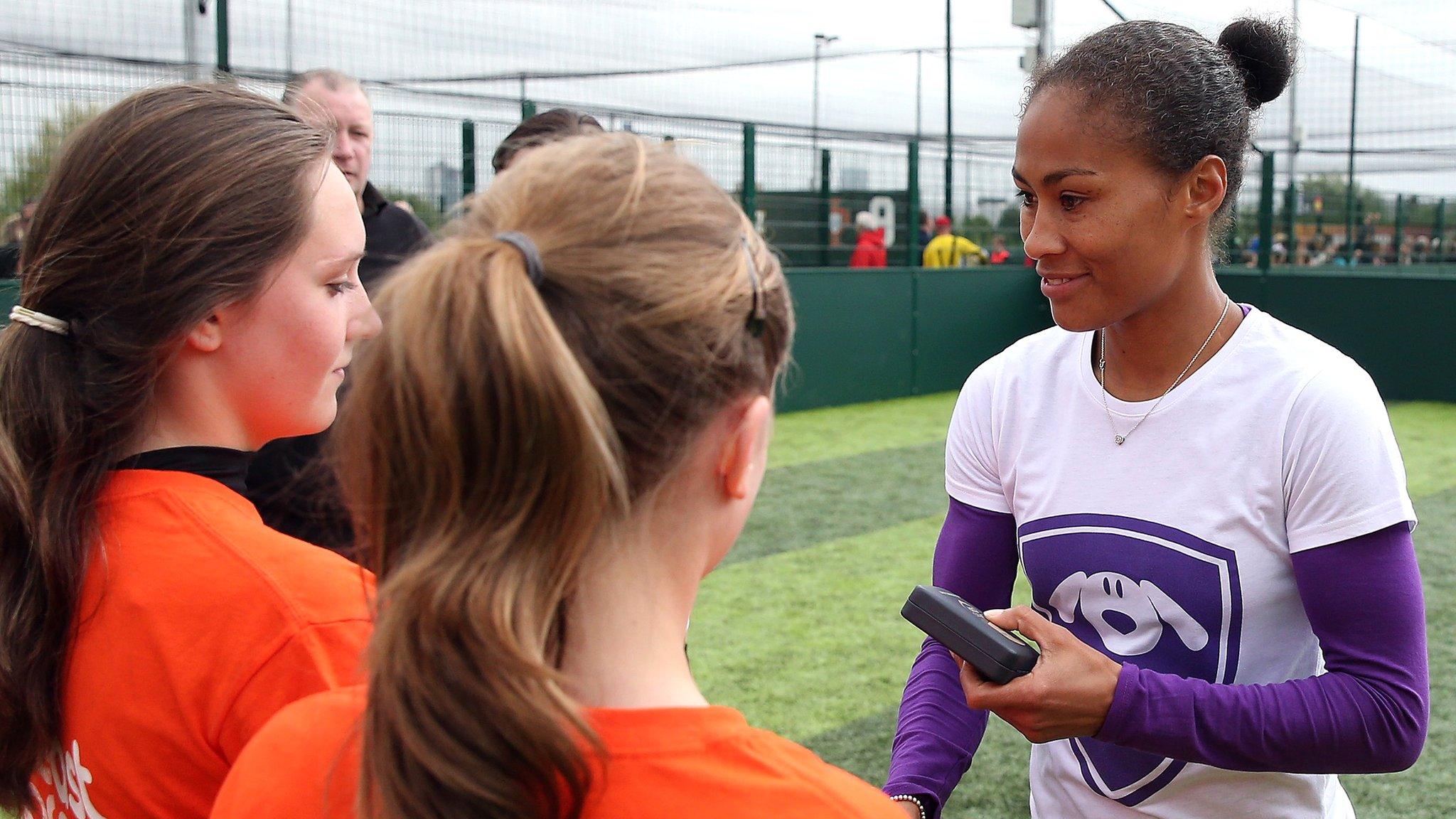
- Published6 March 2017
